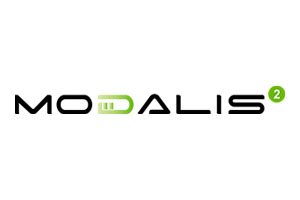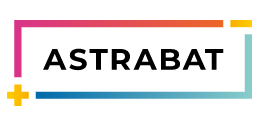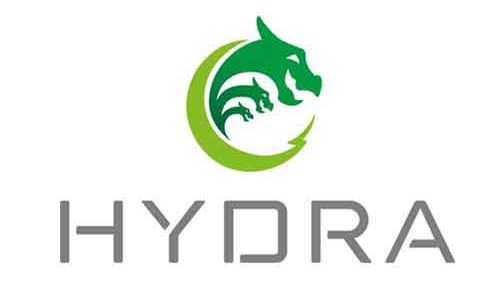Using LNMO, the EU-funded 3beLiEVe project aims to produce the next generation of Li-ion rechargeable batteries for electric vehicles in 2025 and beyond. Along with the next-gen battery cells, the project will also develop and integrate internal and external sensors for the cell. The data obtained from these sensors will provide a more timely and accurate view of the state of the cell and will be used to implement smart operating strategies that extend the life of the cell and improve its safety. The smart battery management system will process this data and manage an adaptive liquid cooling system. Manufacturing, second life and recycling aspects are also considered. The project’s innovations will play a role in strengthening the European battery and automotive industry.
The SeNSE project aims at enabling next generation lithium-ion batteries with a silicon-graphite composite anode and a nickel-rich NMC cathode to reach 750 Wh/L.
Lithium-ion batteries are the most popular power sources for future transportation. Extending the driving range and enabling fast charging are key for promoting the adoption of electric vehicles. The EU-funded SeNSE project aims to create next-generation lithium-ion batteries with a silicon-graphite composite anode and a nickel-rich NMC cathode to reach a volumetric energy density of 750 Wh/l. The new battery will also provide a battery management system couped to dynamic in-cell sensors to enable faster charging, improved sustainability and recyclability, and reduced production costs.
The COBRA Project aims to develop a novel Cobalt-free Lithium-ion battery technology that overcomes many of the current shortcomings faced by Electrical Vehicle (EV) batteries via the enhancement of each component in the battery system in a holistic manner. COBRA will use battery chemistry consisting of an LNMO cathode in combination with a composite anode based on nanometre silicon and graphite as active particles. The project will result in a unique battery system that merges several sought after features, including superior energy density, low cost, increased cycles and reduced critical materials. The proposed Li-ion battery technology will be demonstrated at TRL6 (battery pack) and validated on an automotive EV testbed. The involvement of several leading organisations for battery manufacturing ensures easy adaptation to production lines and scale-up to contribute to a higher market adoption while helping to strengthen Europe’s position in the field.
The EU battery sector faces significant challenges in a global, highly competitive environment. As the market of electric vehicles (EVs) and electronic instruments is growing, a new approach is needed that makes the development processes of next-generation battery systems cost-efficient. The EU-funded MODALIS2 project proposes an all-integrated development process that increases capacity and considerably reduces costs of EV battery cells. The goal of the project is to develop and validate modelling and simulation instruments for expediting the development of batteries with higher capacity and materials with improved performance. It aims to increase battery safety during transport and functioning, optimise cyclability and decrease production costs. The project will test and prepare the new cell generation with a high capacity of storage for mass production.
The EU battery sector faces significant challenges in a global, highly competitive environment. As the market of electric vehicles (EVs) and electronic instruments is growing, a new approach is needed that makes the development processes of next-generation battery systems cost-efficient. The EU-funded MODALIS2 project proposes an all-integrated development process that increases capacity and considerably reduces costs of EV battery cells. The goal of the project is to develop and validate modelling and simulation instruments for expediting the development of batteries with higher capacity and materials with improved performance. It aims to increase battery safety during transport and functioning, optimise cyclability and decrease production costs. The project will test and prepare the new cell generation with a high capacity of storage for mass production.
ASTRABAT will investigate and develop a new Li-ion cell architecture with an all-solid-state electrolyte design suitable for the use of new high-energy electrode materials and mass production. The goal is to fulfil Europe’s need for a safe, high-energy, sustainable and marketable battery for green mobility that could be manufactured in Europe on a massive scale. To do so, the new ASTRABAT cells will enable:
- Higher energy density and power
- Increased safety and longer life cycle
- Larger operating temperature range
- Lower electric vehicle costs
The EU-funded Hydra project aims to develop a new generation of Li-ion technology that uses sustainable materials to improve the energy, power, and cost of the battery. The project will combine novel materials and environmentally friendly manufacturing techniques with pilot-scale cell manufacturing to develop high-energy batteries with long lifetime. Moreover, it will build a synergy with strong investments by the project’s industrial partners, aiming to retain a significant market share for Europe.
The Batteries European Partnership Association (BEPA) is the international non-profit making association (AISBL) representing the private-side of the BATT4EU Partnership. It gathers the European battery community willing to contribute to the ambitious upcoming Research & Innovation Batteries Partnership under Horizon Europe.








